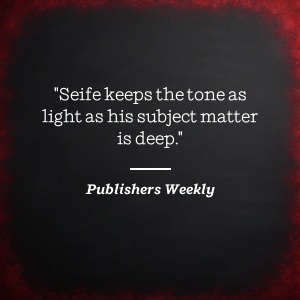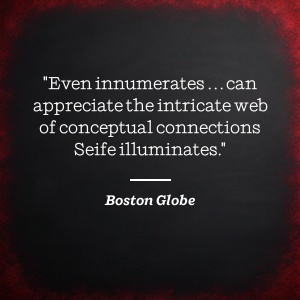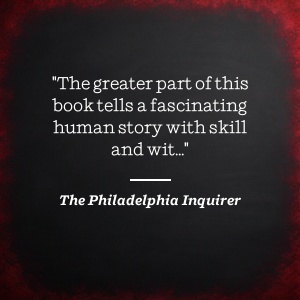

📖 Zero: Where Nothing Becomes Everything!
Zero: The Biography of a Dangerous Idea explores the profound implications of the number zero, tracing its historical journey from ancient civilizations to its pivotal role in modern mathematics and philosophy. This engaging narrative reveals how zero has challenged perceptions and transformed cultures, making it a must-read for anyone interested in the intersection of numbers and ideas.



G**D
Nothing... Something to get excited about
I'll admit, writing a book about nothing and making it exciting is probably a challenging thing to do. This is going to be a rather odd thing to bring up at the start of the review, but I have to ask did people read a different book than I did? Seriously, I read through just about every negative review and the points made against the book are barely in the book I read. If anything, they focus in on a minor detail, interpret it wrong, and then give the book a one star. I digress, let me get to the review and then I may go over some points to refute.This book focuses on the history of Zero for the most part. In there it touches upon historical moments in mathematics and later in physics as it gets to the modern scientific era. I personally found the research on the early history quite on point and very fun to read (there's a lengthy bibliography at the end if you feel the need to see his words backed up). The sensational writing didn't bother me at all, because I realize the relationship between the title and the style. Seife is trying to make nothing exciting! If you didn't get that point or got annoyed with that style then you missed out on a really fun read. The author tried to include fairly random historical anecdotes about the people discussed to lighten the mood in the book. I thought these were fun additions and interesting to read as well.Overall the book is written in decently easy to understand language. I have a fairly decent mathematical background and I didn't feel I really needed to know everything to read the first half of the book. However, when Seife starts delving into concepts like Calculus and Set Theory I think knowing how to do calculus was definitely a help in understanding this section. If you're more of a lay reader and more interested in the history than the math then this book really might be a bad choice. The first part is absolutely fascinating, but it does get confusing towards the end, especially when he starts delving into Quantum Theory and Particle Physics.One aspect on the section of early history that I found particularly fascinating was the relation of zero to philosophy. The ancients were heavily influenced by beliefs and philosophy so it's not much of a stretch to think this influence stretched beyond just those subjects and into math and science. So when Pythagoras and Aristotle reject notions of the void philosophically it's reasonable to assume they would find such notions nonsense mathematically. For a long time, and still today, Math is merely a representation of the world we see and observe. They didn't observe voids or vacuum's during Aristotle's time so naturally they wouldn't exactly latch onto it as a real possibility. One thing that really fascinated me was the possible hindrance philosophy and belief (or religion) had in holding back mankind's ability to progress mathematically. The main reason that zero didn't make it into the western world probably had more to do with the stranglehold the Romans put on the people than with their unwilling to believe in the void or infinity, which is also why it was trade that finally used zero. However, there were intellectuals alive and breathing during the Dark Ages and a lot of their hindrance to accept concepts like zero was philosophical. The Church had adopted Aristotle's model of the universe and it was blatantly wrong. (This book does not say Aristotle is at fault for holding back people philosophically, it merely says his view/model, that the Earth is the center of the universe, is wrong. Which it is.) However, the rising power of the Catholic Church adopted his explanation and said it was a fact and back then their word was law. Once mathematics and science came across discrepancies in that proof then Church asserted its power and only tried to tighten its grip on those communities until people revolted against it. I'm not saying zero is the reason we got out of the Dark Ages, but it didn't hurt us any! It probably helped us a lot more in the long run. My point in bringing this up is that things like belief and philosophy can hinder progress in fields like the sciences. (These are not beliefs, as in making assumptions about testable criteria by the way.) It seems to make more sense, that if you must derive some divine notion, you would interpret the data, not try to fit the data into a preconceived belief. Thus belief would interpret the math and math would not interpret the belief. The ancients had this backwards for a long time, which I think that's a major factor and this book touches upon that.As I mentioned above the book can change gears into something very complicated. I think this is kind of the downfall of this book for some people because the confusing explanations at the end leave them on a low note. As the book progressed and got beyond my mathematical understanding I found the explanations a lot more confusing. When it finally got out of the confusing areas I think it picked up again during the sections on the expansion of the universe. I enjoyed the parts of Zero Point energy, but I'm not entirely sure it's written in a fashion that is easily understood. Seife makes comments in a very historical manner and I think that really confuses people at times. Such as one reviewer complained that the books information is outdated on Vacuums and concepts like limitless energy. However, this book does touch on that subject during its discussion of Zero Point energy, maybe it was merely presented in a way that confused readers? I'm not entirely sure; I didn't personally feel confused until he started talking about Set Theory, which I clearly need to brush up on.In the end I simply loved this book. I tore through it in a mere three days and I'm a pretty slow reader. I personally didn't mind the sensationalizing of zero to fairly emphatic levels. This is a book about nothing after all and you might as well make it sound really exciting! Maybe there should've been more exclamation points so we can see how impressive the author's thoughts really are! Anyway I had fun with this book, but I wouldn't recommend it to people that haven't made it beyond calculus or else the second half might get a little confusing. Previously understanding Einstein's work would be a bonus to getting through this book as well. Other than that the first half is absolutely fascinating and I feel I walked away with more knowledge than I went in even if the book repeated a lot of things I already knew.Overall Rating: 4.5 out of 5
J**Z
A Truely Entertaining Read
In simple summary, this is one of the most entertaining books I've ever read. It takes the reader through a long, troublesome, history of zero. The author has definitely done his research, and the book remains entertaining throughout.The only drawback is that he gets a bit off topic sometimes, and it feels like he's trying to fill up a bit of remaining space. The 'padding' is still very entertaining, however.There is much criticism about how the author uses non-standard language throughout the book. I think those folks are missing the point. This is not supposed to be a book used to teach from, nor is it meant to sit among other mathematical/scientific journals. The book is intended as journalism, and nothing more. That means you are meant to read it, enjoy it, and put it back down. Any confusion can be solved by doing actual research in the field, if the topics interest you so.Note: The "proof" he presents that one reviewer claimed was a proof that it was better to be Christian than atheist was just an example of the church's acceptance of infinity, nothing more. Pascal brought about the church's acceptance of a concept that mathematicians needed, Seife simply explained how he did it.
E**T
Fascinating and illuminating!
I loved this book. I did get kind of bogged down halfway through by math concepts my mostly forgotten long-ago college calculus couldn't cope with, but I kind of just wallowed through those and had no more real difficulty later on. Or at least no more difficulty than most regular people have when reading about quantum physics, multiple dimensions, and trying to grasp that zero and infinity are more or less the same thing. The concepts are difficult but the writing is lucid, and I recommend the book strongly.Seife also makes a very sly in-joke in this book: he's talking about some theory and says parenthetically, "I have a wonderful proof of this, but alas, this book is too small to contain it." Which is a reference to what Pierre de Fermat wrote in the margin of one of his notebooks (except he said "margin" instead of "book") about what came to be called Fermat's Last Theorem, setting mathematicians to pulling out their hair for something like 350 years afterwards. The eventual solution to *that* famous Gordian knot was described in "Fermat's Enigma," by Simon Singh--another great book about math for the layperson.
TrustPilot
1 周前
1 个月前